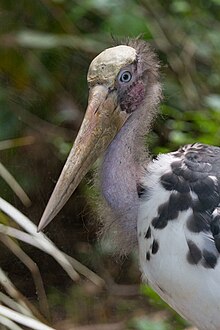Sanjoy Dey, Hindustan Times, Ranchi
Updated: Mar 08, 2016 15:33 IST
 “The bird was hit by stones. It’s legs
had injuries. We have sent the bird for cure and care to
“The bird was hit by stones. It’s legs
had injuries. We have sent the bird for cure and care to
The lesser adjutant is placed in the
vulnerable category -- the red list for birds -- of the International Union for
Conservation of Nature (IUCN). “Weight of the bird is around 10kg and it has a
wing span of five feet,” Madhukar said, adding that the bird was rarely sighted
in a few water bodies in Jharkhand. “Our team is investigating who injured the
bird,” he said.
KK Sharma, in-charge of the
Jharkhand-Bihar chapter of the Ornithology Society of India, said the bird
became rare in the state because of food shortage and poaching.
“In Jharkhand villages, the bird is
poached for two reasons -- meat and superstition. The bird’s beak and bone are
kept in houses with a misconception that they bring fortunes,” Sharma said.
“Population of the bird is dwindling
rapidly in the world due to habitat loss, anthropogenic pressure, decreasing
wetland feeding areas, intensive fishing and increased use of pesticides,” said
Satya Prakash, state convener of Bombay Natural History Society (BNHS).
No comments:
Post a Comment